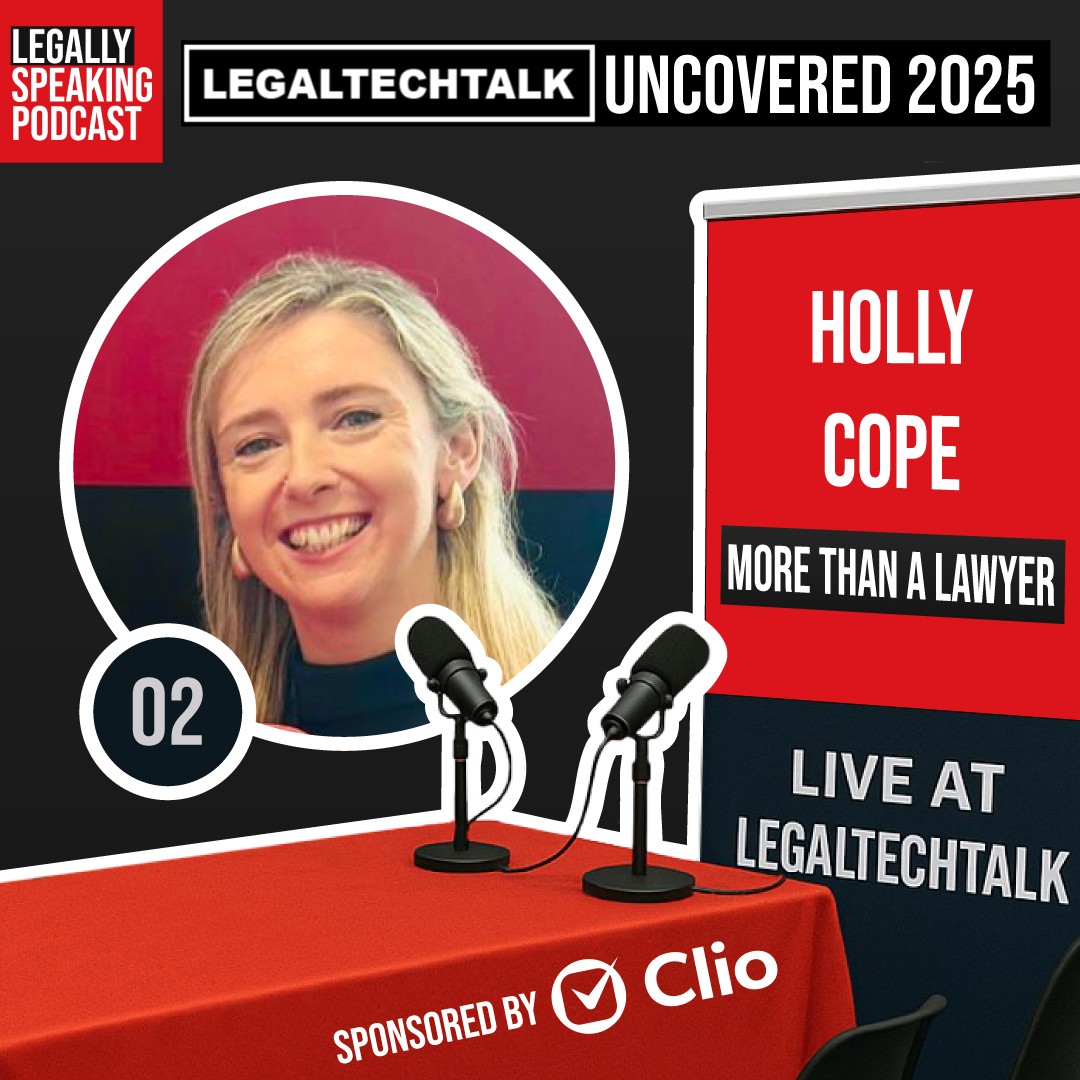
LegalTechTalk Uncovered 2025 – Holly Cope – E02
On our second episode of LegalTechTalk Uncovered 2025, we speak to Holly Cope. She is the
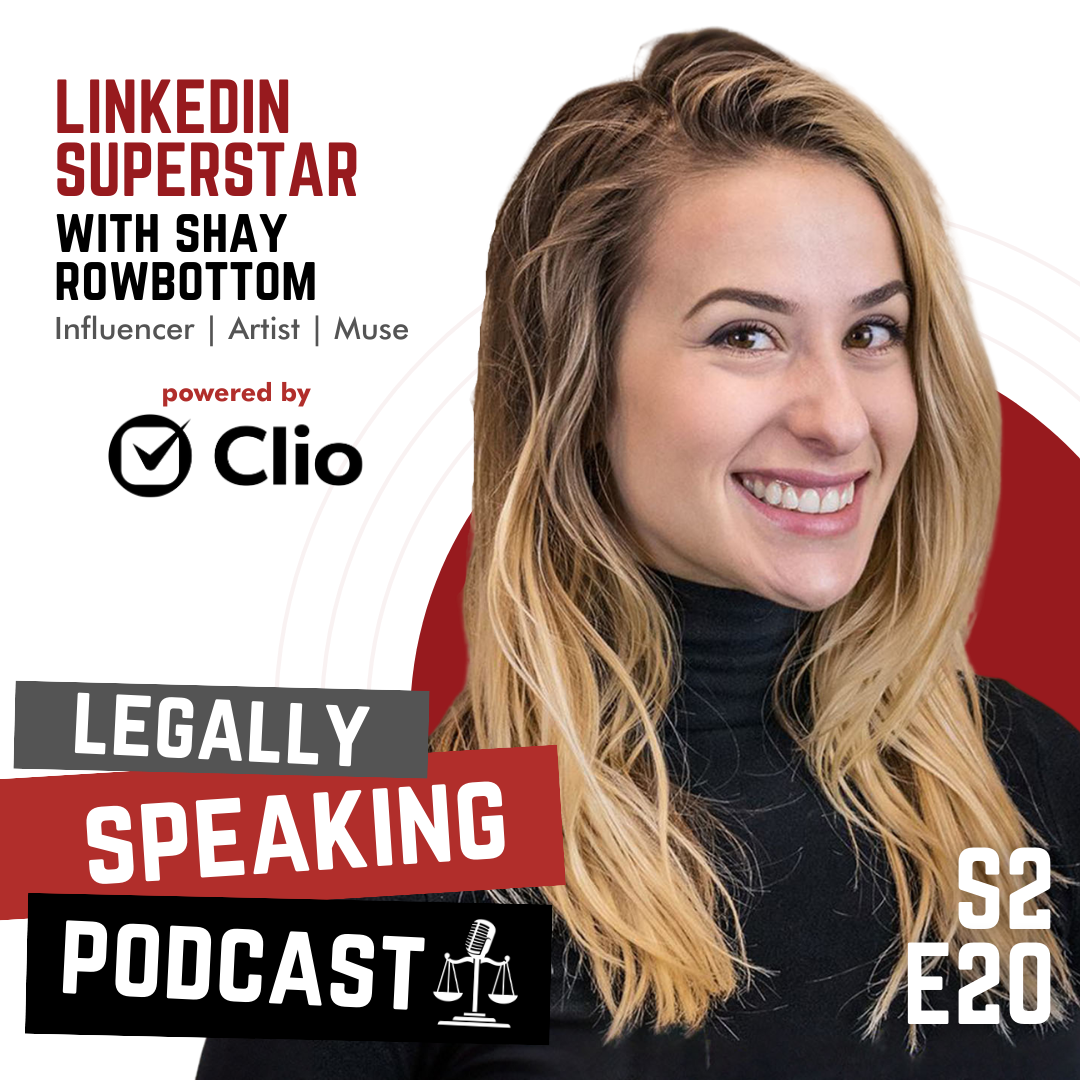
This week on the Legally Speaking Podcast our host Rob Hanna is joined by the amazing & inspirational Shay Rowbottom!
Shay is the CEO of Shay Rowbottom Marketing, a Social Selling Expert & high profile Public Speaker. Shay is known globally for turning Founders and Executives into LinkedIn video creators that lead to massive revenue for their organisations.
Forbes (2020) described Shay as a “LinkedIn A-lister”, someone with a large following on the ultra-professional social network who is beating the algorithms. When Shay speaks, people listen. A lot of people. The Legally Speaking Podcast is no exception, we wanted to invite Shay on to learn more about the powers of LinkedIn and how it can work for those in the legal sector and how this could be beneficial for current practising and future lawyers.
This is a truly inspiring episode and must listen to as Shay has amassed millions & millions of video views with her own and clients LinkedIn content. Video and Podcasts is the next trend of marketing for law firms and lawyers – tune in to find out more! #ShayShine
Robert Hanna (00:00):
Welcome Shay to the Legally Speaking Podcast, Powered by Kissoon Carr. Nice to finally have you on the show.
Shay Rowbottom (00:06):
Yes, it’s my pleasure, Robert, thank you for having me.
Robert Hanna (00:09):
No, it’s an absolute pleasure from our side. So you’re very well known globally for turning founders, executives into video creators that in turn turns into massive revenue generation, you’ve been recognized in Forbes. You’ve had tons and tons and tons of success, which you know, is really, really commendable. But before we talk about that and LinkedIn, which is really what, you know, tell us a bit about your background. So I believe you have a passion for songwriting and music. So tell us a little bit more about that.
Shay Rowbottom (00:37):
Yeah. So a pretty crazy background. You know, I, I came from a really rough household upbringing. It just made me really smart. That’s the beautiful side of sometimes growing up in these dysfunctional environments is it can make you a lot more intuitive and a lot more insightful. I became an expert at human behavior because of how mentally ill my family was. But as a little girl, I loved getting attention like I was neglected. So I think I, that kind of fed this natural inclination to entertain, to want to be seen, to want to be praised. So ever since I was a little girl, I really wanted to be in entertainment. I knew I wanted to be a singer. I knew I wanted to be famous, but I was doing it all from a very wounded place. Right. I was very unconscious at the time of why I even had these passions and I grew up and I got into it and I started to figure it out.
Shay Rowbottom (01:32):
You know, I started to be faced with my own wounds, my own darkness and my own insecurity. A lot of that, I did learn through dropping out of college at age 20 to pursue a music career. And I, and I did it on my own, you know, I didn’t have support from my family. And you know, even a lot of your friends, when you pivot and want to try something new, they’re kind of like nose in the air, like, ‘what do you mean you’re going to be a musician now?’. Like they don’t, you know, so it was, it was really, it was a hard time for me, but I figured it out. I did it for about three years. I did get some shows. I did get some press, but it was so minuscule, like so, so miniscule, I was still waitressing. I couldn’t pay my bills.
Shay Rowbottom (02:09):
Like I knew I had to pivot. I knew I had to change. If I really wanted to reach my goals. So I was presented with an opportunity at age 23. So I’d been doing music for like three years now. I was presented with an opportunity to edit video content for a really large page on Facebook. And it totally changed my life. I knew that this blog owner was making a ton of money, passive income. I knew he was way better at growing a following than me, this like dinky, local artist. So, and he was my age too. Like he was also a college dropout. Like it, it just showed me what’s possible. You know, I just saw like, well, if this guy is doing it, there’s something there and I want to learn more. So I really humbled myself. I quit music, decided to put my dreams on the back burner to learn digital marketing from this man.
Shay Rowbottom (02:53):
And also a lot of his friends were also blog owners. I started to get a lot of clients just via word of mouth, the video content I was producing, I was getting better and better at tapping into the social media mindset. What goes viral, how to edit for social. And it just blew. It blew up. You know, it exploded. I ended up getting an investment at age 24 scale that company for years sold my shares at the end of 2018. So about a year and a half ago now. And at that time I had already started my LinkedIn blog, where I was growing very quickly. I think I had about like 30,000 followers on LinkedIn. When I sold my shares at the last agency, knowing, selling the shares, knowing, Hey, I’m going to go and dive all into LinkedIn. Now I already have this platform.
Shay Rowbottom (03:36):
I already have this following. I’m going to take everything. I learned about video marketing on Facebook and apply it to LinkedIn for business owners so that they can attract inbound leads and way more revenue all through the LinkedIn platform, which is exactly what I had done for my last agency before I sold my shares. So that’s where I am today. I love helping people. You know, I love teaching people about how to make video content, how to optimize it. But most importantly, I love just teaching people how to be themselves. And this ties back to my childhood and all the hardship that I’ve been through is I see a theme where it’s really not just me. You know, it’s, it’s almost all of us in society are operating from this really fake place in authentic place, feeling like we need to fit in. That’s not going to thrive in a content strategy. Like people on the internet are craving authenticity. They’re craving real human connection, real stories, real vulnerabilities. So that’s a big part of my coaching as well as just teaching people how to be themselves. And as a result, they not only learn how to optimize video content for conversions on LinkedIn, but it’s beautiful because they also get to learn about themselves through the process of becoming a content creator and how to really be open and create more fulfillment in their life as a result.
Robert Hanna (04:50):
So let’s talk a bit more about that then. So, you know, your video is hugely successful, millions and millions of views, you know, turning in some really expansive revenues as well for these companies and organizations. So we’re also on the Legally Speaking Podcast, we support law firms, lawyers you know, they may might be listening in going, ‘do you know what? I’m just not the LinkedIn, what’s the point of me as a lawyer or someone in professional services? Why should I embrace LinkedIn?’ What do you say to those?
Shay Rowbottom (05:14):
Yeah, that’s a great question. You know, I think that it’s one of the last industries to hit social media. So this is, this is not going to go anywhere. You know what, no matter what industry you’re in, social is the future. So there’s a lot of industries where they tell me, like, I don’t need social. I do traditional marketing on traditional channels. That’s fine. It’s not every industry is going to be like fitness or beauty where like, those are already well known on social media. There’s a lot of fitness influencers. There’s a lot of YouTube channels that are all about how to put on, make up and this and that. But what I will say is when you don’t have a lot of competition in your industry utilizing social, and you’re kind of one of the first to the scene as a lawyer using this route to get attention and to get exposure, you have a massive advantage because think about it just because someone is more experienced than you as a lawyer, maybe someone has twice the experience you do.
Shay Rowbottom (06:10):
They’re older than you they’ve been in the industry longer. They’re clearly the more qualified lawyer. But if you are showing up on social media as a personal brand, consistently providing value, being seen as someone who’s just helpful, who’s just giving, not asking for anything, just kinda, you know, subtly flexing your expertise, but simultaneously giving free tips and helping people. I mean, you’re always going to win that competition. Even if you’re less experienced than this guy over here, who’s not doing any video content and that’s happening. I mean, people get upset, like hire someone like Shay Rowbottom versus my marketing company, you know, we’ve been in the industry for longer. We’re older. Well, what are you making content? Are you showing up consistently as the expert? It’s all about being top of mind. And I think for lawyers, I would really encourage you to get after it because there’s so little competition right now.
Shay Rowbottom (06:59):
So if you can show up and make a personal brand, a blog where you’re consistently sharing content, that’s just helpful for your target audience. As soon as someone needs a lawyer, as soon as someone gets into the space where something occurs in their life, they’re going to need your services. Who do you think they’re going to think of? You, because you’re top of their mind or if they hear a friend is saying, ‘Oh my gosh, this just happened. I’m going to need a lawyer’. Oh, hey, ou know, I follow this lawyer on social media. They’re super helpful. Go check them out. So it’s just a great way to be seen. And especially in an industry with little competition, I would definitely encourage you to get after it. Now while you have a head start.
Robert Hanna (07:35):
Okay. And you very much are the expert and says video content. So, you know, there’s definitely an aspect of engaging and lawyers should engage and get out there, but why should they do in terms of video content specifically, what do you think are the benefits? Obviously It’s time consuming. It might be, and these are busy lawyers. So why should they turn to that?
Shay Rowbottom (07:51):
Yeah. You know, it’s the most powerful form of content on social media now. Everywhere you look, there’s a video, most business landing pages, their websites have a video now, YouTube, Tik Tok. I mean Facebook, Instagram, these, I mean, these platforms all started out as having more traditional content like articles, texts, posts, pictures, that sort of thing. But video has quickly become the way that we connect with one another virtually. So I always say, you know, if I would have posted the exact same topics, the exact same content on my page, the past two years, but it had always been an article or text form, not video. People would just feel way less connected to me. They wouldn’t know who I am. It’d be like, okay, this woman has some valuable posts via tax, but like, who is she? Like what, you know, it’s just not as memorable.
Shay Rowbottom (08:39):
It’s not as authentic on a human level when people see you showing up on video over and over again, they remember you, you know, they’re more likely to watch video grabs your attention on the screen. It stands out in the newsfeed and on most platforms, it really the, the highest performing form of content. That’s actually how I started. My first agency on Facebook was because Facebook had updated the algorithm where suddenly video was King and all of these pages that had grown using traditional media, they were like scratching their heads. Like I need, I need video. And that’s where I came in. I filled that need that the algorithm was asking for at the time, like more video, more video. So those are just a couple of reasons I would encourage you to get on video. And as I touched on earlier, I also think, I think it is a beautiful opportunity to learn yourself and get to know yourself and get over your own imposter syndrome, get on camera and know that you can show up. You can be a leader, you can be a voice. You don’t have to be scared of hiding yourself.
Robert Hanna (09:39):
That’s a big thing. Isn’t it? The being scared and you know lawyer’s are naturally quite risk averse. You know, they’re obviously there to do that job and it’s not natural to maybe put yourself out there and they might be thinking, well, how am I going to make this content viral? You know, is there any tips or sort of top tips you might say to people who are complete novices, that they should kind of think don’t worry about that. Not necessarily your first video is going to go viral, but it’s consistency. Anything you’d say to those people.
Shay Rowbottom (10:03):
Yeah. That’s a good, that’s a great question. You know, I’ve had clients who are lawyers as well. There’s many different forms of content you can create. I do think it comes down to people being afraid of being wrong. So you have to kind of get over that fear, not in the sense of like I’m going to create this really, really tailored, calculated content strategies so that I am never wrong so that I’m never controversial so that everyone on social media is going to like me. That’s not the way you have to come at it. And knowing there’s going to be haters, there’s going to be people in the comments who don’t like you. There’s even maybe going to be content. You release that you are genuinely wrong at some point in time, but you can learn from that. You can grow, I believe 80, 90% of the time, if you’re truly experienced in your industry, you know what you’re talking about.
Shay Rowbottom (10:53):
So to fall victim to the 10, the 20% of the time where you’re not sure if everyone’s going to like or derive value from your content is silly. Cause you’re just withholding the rest of the world, getting this 80, 90% of you sharing awesome value, free tips. And the other thing is, you know, the, the real pressure for a lawyer to perform is in the courtroom. You know, like think about it. If you can get through that. I mean, that’s a performance. That’s like, that’s where the real show is. I mean, that to me is way more nerve wracking. Like I, I, I am all about entertaining. I am not afraid of crowds. I was born for the stage. I do not want to be a lawyer. Okay. I do not want to deal with that pressure. And that’s a lot of what you guys go through. So think about the video. There’s no pressure behind it. You know, this isn’t the case. This isn’t like your moment. This is just you making content and starting to build a brand around your industry. So I would just put it in perspective that way, like, you know there’s not much to lose. And of course, as with anything, the more and more you do it, the easier it does become.
Robert Hanna (12:02):
Yeah, no, absolutely. And I think, you know, one thing as well and says of LinkedIn, that’s your main sort of platform. And we’ll talk about some of the others in a minute, but you know, people that, that platform has just changed. I mean, I’ve been on LinkedIn myself for 12 years.
Shay Rowbottom (12:14):
Oh, wow.
Robert Hanna (12:15):
Or do you think the future of LinkedIn looks like, you know, where’s the platform headed and what do you think is going to happen to something that’s in? And again, why should lawyers or people in professional services really get it now and follow, follow where it goes?
Shay Rowbottom (12:27):
Yeah. Great question. So the biggest thing right away that I say that’s already been happening over the past five years is like, it’s less and less about jobs and recruiters for the longest time on LinkedIn. It was, I log into LinkedIn once every couple of years when I need a job or I’m on LinkedIn every day, but I’m a recruiter. You know what I mean? Like that’s what ran LinkedIn. Now I see it way more as like a Facebook for entrepreneurs. It’s just like anyone in B2B, B to C even, is coming to LinkedIn. But anyone who has a product, a service that could improve the businesses out there that are on LinkedIn watching. I mean, it’s just a great place to find vendors, a great place to find partners. I have a client of mine who’s an investment banker, you know, they use, they use it to find investors and also clients who need funding.
Shay Rowbottom (13:17):
So I think that we’re going to see it evolve more and more to just become a conscious social media platform for entrepreneurs. And the other thing that’s really interesting, you know, I do a lot of outreach campaigns on LinkedIn where I ask people to follow me on other platforms. Right. Because I’m biggest on LinkedIn, but I do what I can to drive traffic to these smaller channels, like Instagram, Facebook. And I would say like 30% of people on LinkedIn, when I say, you know, go to this other platform to follow me, they say, Oh, sorry. Linkedin is actually the only social media platform I use. Yeah. So just an example, like LinkedIn is one of those platforms where a lot of people on LinkedIn only use LinkedIn. Now, why would that be it’s because it’s a certain profile, it’s a business person. It’s an educated person.
Shay Rowbottom (14:04):
You know, it’s a there the demographics a little bit older on LinkedIn. I see all of these things as a huge plus for getting business. You know, I always say there’s no other social media platform with this many educated people on it with money. And I think that’s only going to continue to attract more and more business owners looking to gain leads. They’re going to also get on LinkedIn and start creating organic content to grow that brand. Because it’s not just about job seekers anymore. It’s not just about recruiters. There’s all sorts of services on their lawyers. Like you said, you know, my clients who are lawyers, some of the first of their kind to get on and create content. So yeah, I’m really excited to see where it goes. I think it’s going to more and more, just become a platform for entrepreneurs, conscious people looking to make money.
Robert Hanna (14:50):
Yeah. And years ago, you know, it was word of mouth and people wanting to, you know, maybe invest in forms of media, but would you go as far as to say, if people have an established business now and they forget about LinkedIn or just disregard it completely, do you think that business will still be as strong in sort of five, 10 years? Or do you think it’s, you need to have a personal brand and really embraced LinkedIn to be as successful in modern times?
Shay Rowbottom (15:13):
You know, that’s a great question. I would say it’s just underrated. I mean, it’s not like you can’t have a successful business solely advertising on Facebook and Instagram, probably running ads, you know, having some monthly ad spend and traditional sales funnel and all that. Linkedin’s not cool. Like that’s really the problem. Like people are like –
Robert Hanna (15:33):
Yours is.
Shay Rowbottom (15:33):
Oh ha thank you. Yeah, I’m working on it. Like, but that’s really what it is. Like people have a business and I see their model and I’m like, Oh yeah, this would definitely thrive on LinkedIn. But they’re just, it’s like, it’s like this social conditioning or pressure that like, LinkedIn is just not cool. They’re like, no, I want to grow an Instagram page. I want to grow a Facebook page. It’s like, that’s played out. You know, like, that’s play. I’m not saying you can’t still have success doing that, but it’s so much easier on LinkedIn. And people would like, kind of get over their ego. You know, I tell people I have over 260,000 followers on LinkedIn or, Hey, I’m a LinkedIn influencer. A lot of people in my day to day, not necessarily business people, a lot of people, they don’t even know that that’s a thing. Like, what do you mean? You’re a LinkedIn influencer? What do you mean there’s content on LinkedIn? Like it’s, it’s in the dark still. It’s underrated. So I would say like, look, anything’s possible. I’ve got a lot of friends who use LinkedIn, but in addition to LinkedIn, they run YouTube ads. They have an Instagram that they’re, they’re getting leads from. I just think it’s the lowest hanging fruit is LinkedIn is the most obvious choice, especially for B2B, for finding people who are already in the mindset to do business who already have money and are likely looking for someone like you to solve their problem.
Shay Rowbottom (16:48):
And you don’t even have to pay. I mean, I haven’t ran one ad on LinkedIn. Every single thing that I’ve done has been inbound, organic, and I’ve generated multiple seven figures through this platform. So I would just say people are sleeping on the opportunity because it’s seen as too geeky. It’s seen as not cool. And a lot of people, especially my age, they’ll log in and they see that it’s like glitchy, it’s buggy. There’s not a lot of like cool features that make them feel cool. And they just, they just log out. They’re just like this platform’s whack. And I’m like, okay. Less competition for me.
Robert Hanna (17:18):
Yeah, exactly. I think that’s the way to look at it. And just in terms of then LinkedIn don’ts, you know, there’s probably tons and tons of times, but again, if maybe you’ve got a lot of legal listeners listening in, maybe this has sparked people to get involved, so maybe junior lawyers, maybe senior lawyers, what are some of the do not do whatever you do do not do this because that will not work.
Shay Rowbottom (17:38):
Pitching. Yeah. I mean, just pitching on LinkedIn, I think it used to be more acceptable back when the platform was only recruiters and salespeople it’s more people are more interested in the value you provide now on LinkedIn. They do see it as a place to go find inspirational content just to connect with others. It’s like, it’s become way more about relationships. People don’t like to be sold to they do, but they don’t, you know, they want it to be their choice that they bought from you. Not like you shoving it down their throat, an offer. So I would say in your content, just don’t be silly. Don’t don’t even mention what you sell. I get a lot of pushback for that. People are like, Oh, I want a CTA a the end of every video that says, you know, reach out to our law firm today to dah, dah, dah.
Shay Rowbottom (18:21):
I’m like, you know, you can do that every so often, but really what you want to do is create intrigue. You want to create curiosity. You want to just give selflessly and get people to on their own. Think who the heck was this Robert Guy just like dropping truth bombs, like not asking for anything in return. He didn’t even pitch his services in this content. Like, wow, what a guy, I’m going to click back to his profile and find out, and then on your profile, it should be an ad. Once people click on your profile, now make sure it’s optimized for conversions. Now lay out the solution you provide. Now lay out the call to action, where they can call you where they can get ahold of you to learn more about your services. In the content, do not pitch. I have released thousands of pieces of content at this point on LinkedIn. I would say maybe, maybe 10. If I like directly said like, Hey, you know, I sell a, an online program. It’s a six week LinkedIn video boot camp. It’s great for business owners looking to level up here, come check it out. You know, it’s people who over time grow to appreciate me so much for the selfless value I provide without asking for anything that click on my profile on their own, see what I do on their own and go, you know, I’m going to beg this woman now to take my money, even though she never asked for it, she never pitched. It’s just a natural human inclination when you help someone so much that suddenly they want to, they see the value and that’s social selling. That’s social selling, baby. You just give, give, give, it really does come back, but you have to have faith and you have to have an abundance mindset about it. Otherwise it won’t work. So I would say on LinkedIn, just try to keep the pitching to a minimum and ask what value can I give? What do I know that can make my target market’s lives easier that they don’t know. And just start there.
Robert Hanna (20:06):
I think you, you talk about it as well in some of your videos. It’s sort of like the give, give, the jab, jab and then natural add.
Shay Rowbottom (20:12):
Yes!
Robert Hanna (20:12):
And that is just brilliant. Right? You can give so much out, you know, you’ll naturally probably get the hook and you can think just extends to what you’re talking about, which is amazing. So we have to about some of the other platforms, cause you know, I have a mass debate with all of my team and in my companies as well around Tik Tok. So I’m a big advocate of saying this is coming into the business world. I don’t know where, and I don’t know how completely yet, but what are your views on sort of Tik Tok and where do you see that in the professional working space, working as a platform?
Shay Rowbottom (20:37):
Yeah, I love it. You know, I think it’s really exciting. I, I just recently got on it actually. I was I just started repurposing content for Tik Tok and I’m learning the platform a little. It does remind me a lot of LinkedIn in the sense that like, there’s not a lot of content, so there’s not a lot of competition, so it’s easy to get a lot of views. You know, again, it’s visibility. I think it’s a great place to grow quickly to have another channel that makes you visible. But I do think the demographic on there is kind of the opposite of LinkedIn. Like I don’t see people logging into take talk in a business mindset with their checkbook, ready to find vendors, partners, employees, you know, it’s just, it’s totally the opposite of LinkedIn. So that’s why I continue to make my focus, the LinkedIn platform, because it’s just time and time again, never failed in terms of the qualified leads that I can generate there.
Shay Rowbottom (21:26):
But Tik Tok. Yeah, absolutely. I mean the organic reach is really generous right now platforms they change, you know, they get more and more competitive, more and more saturated. So if you’re already making content or other platforms do what you can to repurpose it on, on Tik Tok, at least somewhat to start growing there because you never know, it’s kind of just having investments in all different buckets could Tik Tok, die as quickly as Vine? Yeah. Maybe, but it could also be the next Facebook, like you don’t know. So I would say just invest there, but yeah, I’m not personally really expecting to get many qualified leads there. I’m just seeing it as another channel where I can get seen, heard, known, trusted and again, in the long run followers create more followers. So every little bit helps.
Robert Hanna (22:12):
Yeah. And everyone’s writing article about that LinkedIn tips, but speaking to someone who’s really dominating LinkedIn like yourself, what are your views? You know, some people are saying, comments are King with what they’re necessarily producing, you know, certain, if you are struggling for content, actually engaging through comments, the three hashtags, the five hashtags, you know, the, any sort of value in that. Do you agree with that? Is there any things that you say actually, do you know what that’s just a little personal opinion. Are the things that have worked for you that you would share?
Shay Rowbottom (22:39):
No, all of those are good tips. You know, I would say at the end of the day, they’re just little hacks and little tricks to like optimize the post to maximize the reach. But at the end of the day, it’s going to be how authentic your content is. Even you just giving legal advice. You know what I mean? Even you just like, as, as much as you can make it human, this is what I teach. I always joke. Like I’m a life coach, you know, I’m, I mean, I, I have a marketing background and I know a lot about video, but like the world now more than ever is craving authenticity is craving people to make them feel human people, to make them feel normal. So as much as you can just be authentic, just be real every time that filter shows up in your brain where you have like an inspirational thought or maybe you get kinda triggered by something, you have an emotional post you want to share.
Shay Rowbottom (23:30):
And it’s immediately followed by a thought of like, Oh, but like I can’t post that. That’s too raw. That’s too vulnerable. You know, I’m going to, I’m going to turn people off, just really sit with yourself and ask like, could I post it? And would it actually be the best thing for society? I just started to get really real. I mean, people ask, how did you grow so quick, Shay? Yes, it was my marketing background. It was everything I learned about how to optimize video for the newsfeed. But I it’s because I was myself it’s because I was saying the things that most people think and are way too scared to say out loud. It’s just what the world needs right now. You know, we need to stop caring so much what people think. We need to stop Keeping up with the Jones’ is trying to fit in, look where it’s gotten us. Like people are miserable. People feel like they can’t open up, especially men. Oh gosh. You know, like women are, at least women are at least taught. Like it’s okay to cry. It’s okay to let it out. Like, I mean, we’re just, we’re so clenched as a society like clench, like fit in, you know, check all the boxes, you know we need to start getting real with ourselves again. And the more that you can be, the authentic real you in your content, not only are you going to attract clients who really like you for you and are therefore easier to work with because you never had to be your fake business, self working on their account, you could just be the real you. I mean, that’s how I am with my clients. Everyone who buys from me is like a fan. They know me.
Shay Rowbottom (24:53):
They’re not going to be surprised if like some of my realness shows up. But on top of all of that, you’re also being an example and showing other people what’s possible and giving other people permission to also voice their truth. And that’s what’s needed in the world right now. We need truth seekers. We need healers. We need people who are willing to get real and raw and stop fearing. Like I always say this, Robert it’s like, people live like they’re going to live forever. It’s stupid. People literally live their lives. Like their reputation is God. And they’re going to live on this planet until the end of time. So that reputation better, never waiver because they’re never going to die. It’s like, you’re going to die. Like you aren’t going to die. Like you need to live. Like your life is limited. Stop living. Like your reputation is going to live on forever. We’re all going to be dead in a hundred years. So what are you so afraid of?
Robert Hanna (25:42):
Yeah. And I just love that. And I, I even mentioned to my team, I gave them a tip the other day, if you’re getting anxiety about a post or you’re not sure about whether you should post it, that’s the one to post.
Shay Rowbottom (25:51):
Love that.
Robert Hanna (25:51):
That’s the authenticity right there. And I think that’s the message we need to get out to people. You know, vulnerability is actually to be accepted and people, you know, that’s what they want to be saying. So I just love all of that. So before we wrap up Shay, what’s next for you? I mean, you’ve got hundreds of thousands of followers created millions of views, hugely successful. Entrepreneur Forbes are all over you, all these great intentions, but what’s next. What’s next for you? What’s the next part of your journey?
Shay Rowbottom (26:14):
Healing. You know, starting a healing company. Like I have been on this spiritual growth journey since I got on LinkedIn. Linkedin was a huge catalyst for it. Like LinkedIn really showed me my wounds and what I was holding from childhood. Like I said, where I was using the attention I got on social media as this external validation to make myself feel good. That’s not healthy. You know, you never want to build a following from that energy. That’s, I’m not going to be fulfilling in the long run. And LinkedIn showed me that myself and I was brave enough to face that in myself and get real with myself. And a lot of it just linked back to my childhood. I started to remember a lot of things from my childhood. I had repressed things I wasn’t dealing with and those things don’t go away. You know, they show up in your life in one toxic form or another.
Shay Rowbottom (26:59):
So you really have to get to the core and dismantle it. And the funniest thing is simultaneously well, growing this blog while growing this marketing company, I’ve been doing so much personal development, work on myself and the more and more I do it, the more I just want to help others because I see it everywhere. I see so many people are wounded operating from a place of real insecurity, just faking it, holding it all together. But on the inside there, they’re screaming. I want to change the world. You know, I want to bring healing to the world. I want to use everything that I learned in digital marketing these past years to market healing, to teach people, Hey, there’s a better way than the system we’ve created the system. We’ve created this society. The typical day to day life, the values are not good for the human soul and for the spirit.
Shay Rowbottom (27:44):
And I think consciousness is finally waking up to realize that like, you know, how long can we go on living in this world where it’s the world is basically just a business at the end of the day, the world is like, okay, the economy, it’s like, what’s the end goal here? What, what does humankind want to accomplish just a healthy economy? Like it doesn’t always come back to meeting the basic human needs, which is, you know, being honest, sharing your truth, healing the wounds. So right now, you know, my marketing company is, is growing and thriving without me having to give so much attention personally to it anymore. And I’ve really refocus my attention on building a healing company and, and what that’s gonna look like. And I am in the beginning stages, but it’s something I’m very passionate about. I’ve done it. You know, I’ve done a lot of work on myself. It’s resulted in more business, more money, more fulfillment than ever before. And I want to show other professionals and just other, other people from all walks of life, like you do have the power to heal. We have the power to make this world a better place, but we desperately need to start getting real with ourself. We need rigorous honesty. You know, we have been lying to ourselves for decades about what’s really important and about what is actually real. So I’m using my platform and using everything I’ve learned in addition to marketing to bring that message to the world. If we can be real and we can heal and we need that now more than ever.
Robert Hanna (29:10):
Yeah. And that’s just the perfect way to end it. I’m really excited for you. I can’t wait to hear more and see more about that new, a new venture as well, but from everyone on the Legally Speaking Podcast Shay thanks so much for sharing all your sort of expert insights. You’ve got hundreds and hundreds of thousands of followers, but I’m sure you’re going to get tons more off the back of this, who will be willing to follow you for more and more content. Keep up all the tips, but no, seriously, thank you so much. It’s been an absolute pleasure having you on.
Shay Rowbottom (29:33):
Yes. Thank you for having me. Robert. It’s been a pleasure.
You may also tune in on Goodpods, Apple Podcasts, Spotify, or wherever you get your podcasts!
Give us a follow on X, Instagram, LinkedIn, TikTok and Youtube.
Finally, support us with BuyMeACoffee.
🎙 Don’t forget to join our Legally Speaking Club Community where we connect with like-minded people, share resources, and continue the conversation from this episode.
Sponsored by Clio – the #1 legal software for clients, cases, billing and more!
💻 www.legallyspeakingpodcast.com
📧 info@legallyspeakingpodcast.com
Disclaimer: All episodes are recorded at certain moments in time and reflect those moments only.

On our second episode of LegalTechTalk Uncovered 2025, we speak to Holly Cope. She is the
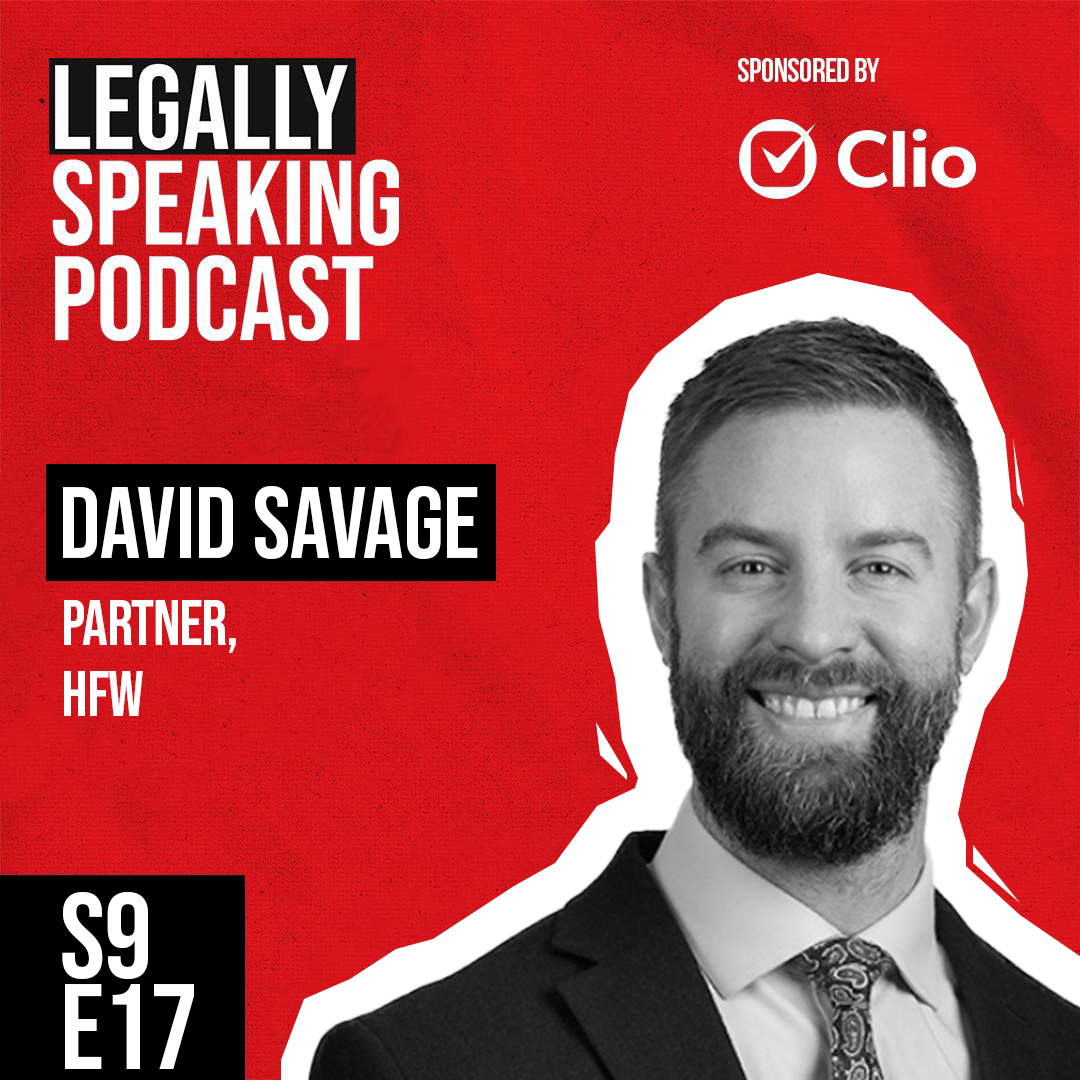
Fraud, corruption, money laundering, how do the world’s top lawyers tackle financial crime at the highest
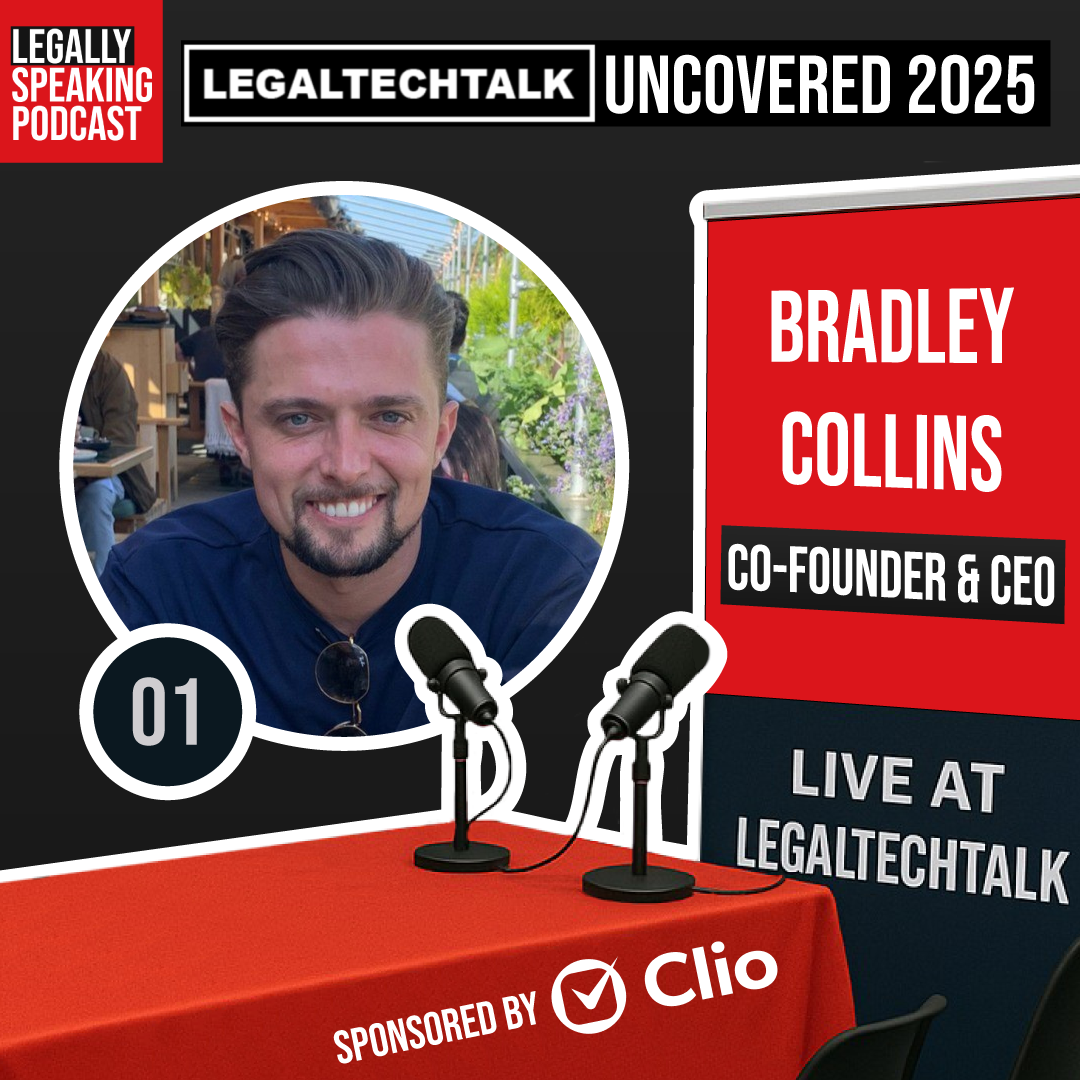
🚨 BREAKING NEWS: CEO of LegalTechTalk Shares What You Can’t Miss at #LTT25 🚨 🎤 This
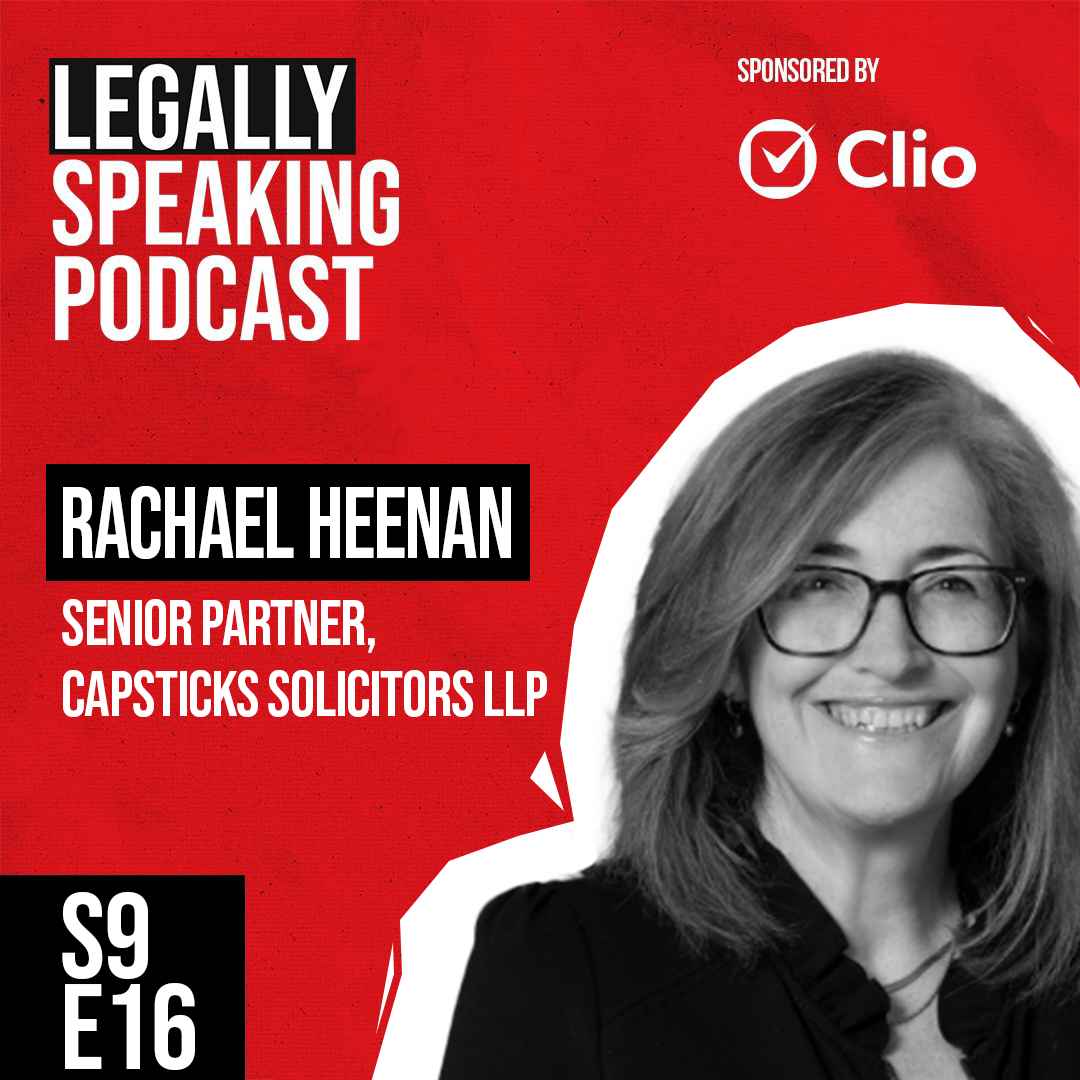
On today’s Legally Speaking Podcast, I am delighted to be joined by Rachael Heenan. Rachael is
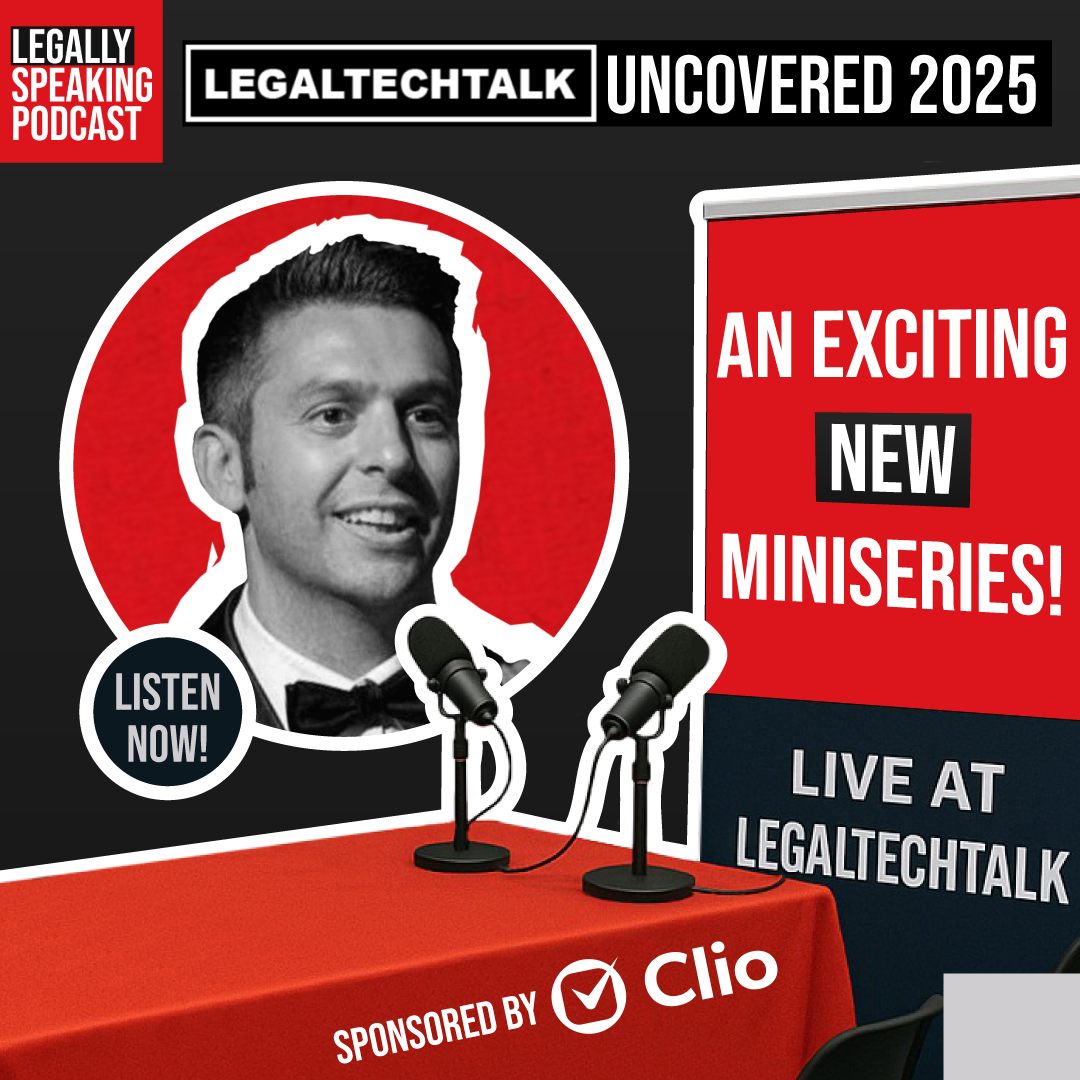
We’re bringing the heat to LegalTechTalk 2025 🔥 The Legally Speaking Podcast ™️ — proud returning
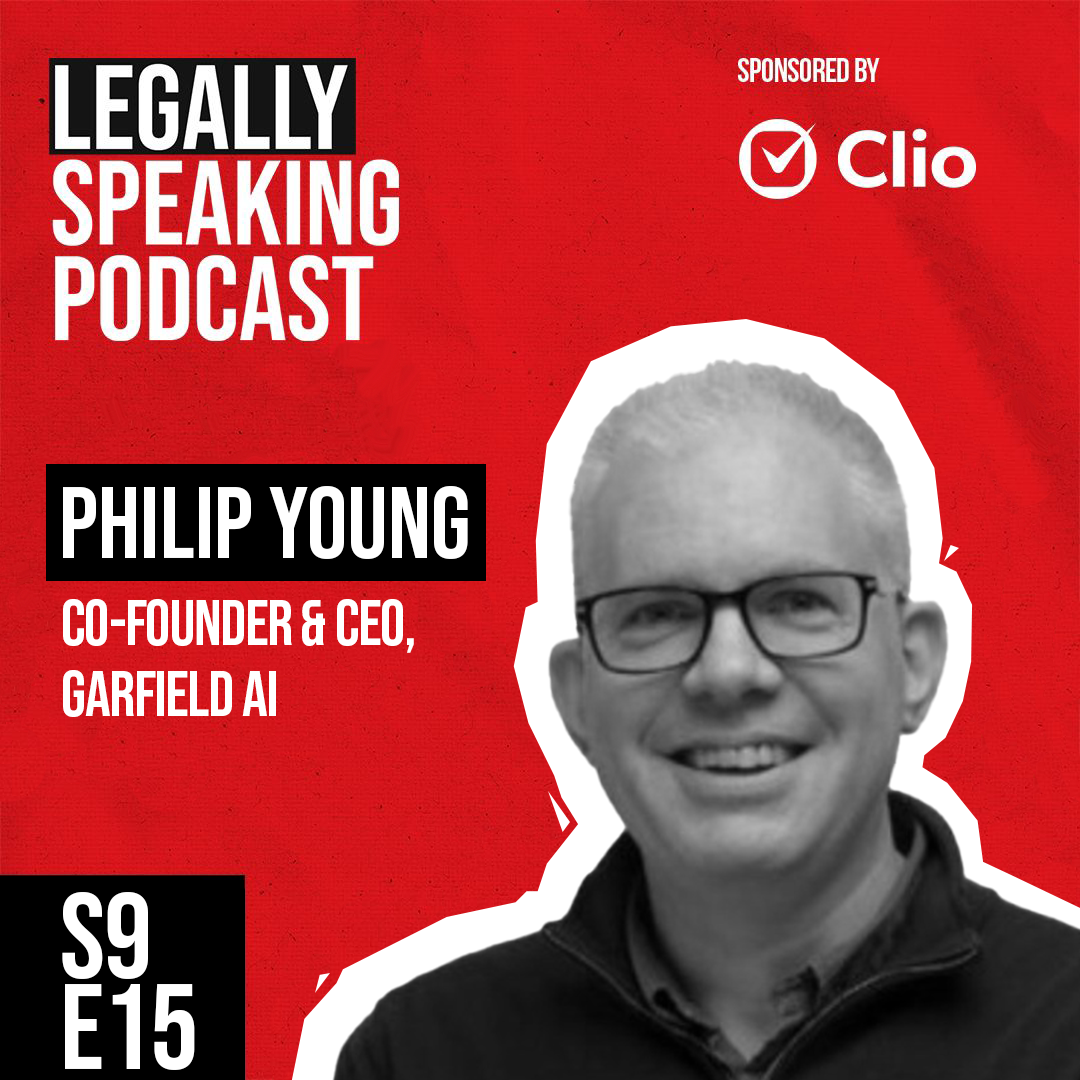
On today’s Legally Speaking Podcast, I’m delighted to be joined by Philip Young. Philip is the

*DISCLAIMER* All episodes are recorded at certain moments in time and reflect those moments only. The podcast does not support or associate itself with any inappropriate behaviour or actions that may have occurred after recording.